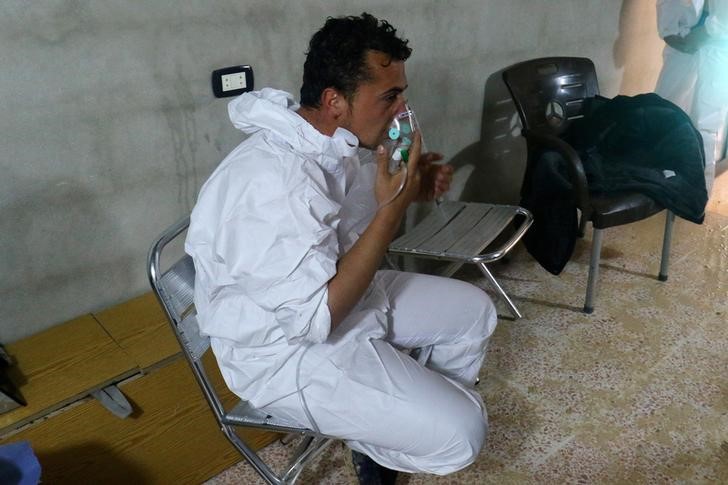
MOSCOW (Reuters) – Russia on Thursday set out why it disputed U.N. and Western allegations that the Syrian government had been behind a deadly chemical attack on the opposition-held town of Khan Sheikhoun in April that killed dozens.
A report sent to the United Nations Security Council last week concluded that Syrian President Bashar al-Assad’s government was responsible for the attack, which prompted a U.S. missile strike against a Syrian air base.
Russia, whose air force and special forces have been supporting the Syrian army, said at the time there was no evidence to show Damascus was responsible and the chemicals that killed civilians belonged to rebels, not Assad’s government.
On Thursday, with the aid of maps, satellite footage and charts, Moscow set out why it believed the Syrian government had been unfairly maligned.
A Russian Defence Ministry official told a media briefing that the Syrian Su-22 jet accused of dropping the chemical bomb was not physically close enough to the attack site to have been involved.
“Thus, I believe the information provided cannot confirm the use of chemical weapons in Khan Sheikhoun in the form of an aviation bomb dropped from a Syrian Air Force Su-22 jet,” the RIA news agency quoted the official, whom it did not name, as saying.
Mikhail Ulyanov, head of the Russian Foreign Ministry’s Department for Non-Proliferation and Arms Control, told the same briefing that U.S. accusations that Russia had encouraged the use of chemical weapons in Syria were ungrounded, RIA reported.
“It was hysteria and a completely open attempt to discredit Russia with rather primitive dirty means,” Ulyanov was quoted as saying.
The White House on Wednesday admonished Russia after it vetoed a United Nations plan to continue its ongoing investigation into the use of chemical weapons in Syria.
Syria agreed to destroy its chemical weapons in 2013 under a deal brokered by Russia and the United States. The Syrian government has repeatedly denied using chemical weapons during the country’s more than six-year civil war.
(Reporting by Jack Stubbs; Editing by Andrew Osborn)




